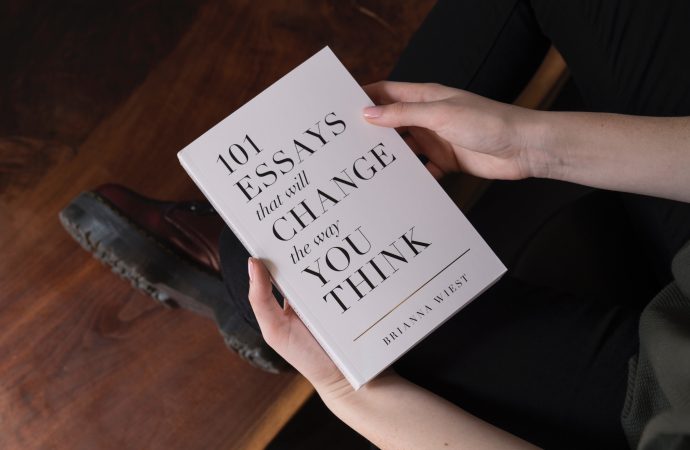Self-help books have been around for centuries, but in recent years they have seen a surge in popularity. From Oprah’s Book Club to bestseller lists, self-help books are more prevalent than ever before. But what is behind this rise in popularity? Why are people turning to these books for guidance and inspiration? One possible explanation
Self-help books have been around for centuries, but in recent years they have seen a surge in popularity. From Oprah’s Book Club to bestseller lists, self-help books are more prevalent than ever before. But what is behind this rise in popularity? Why are people turning to these books for guidance and inspiration?
One possible explanation is the increasing focus on mental health and self-care. With the rise of social media and constant connectivity, people are feeling more stressed and overwhelmed than ever before. Self-help books offer practical tools and strategies for managing stress and anxiety, improving relationships, and achieving personal and professional goals.
Another factor is the accessibility of self-help books. With the advent of e-books and audiobooks, people can easily access self-help titles on their phones or tablets, making it easier to fit reading into their busy schedules. Many self-help books are also available for free or at low cost, making them an affordable option for those who may not have access to therapy or coaching.
But what sets self-help books apart from other genres? The answer lies in the emphasis on personal growth and empowerment. Self-help books encourage readers to take control of their lives and make positive changes, whether that be in their relationships, career, or personal habits. They provide practical advice, exercises, and examples to help readers identify and overcome obstacles, and ultimately reach their goals.
Some critics argue that self-help books oversimplify complex issues and fail to address the root causes of problems. They may also perpetuate a culture of individualism and self-focus, rather than promoting collective action and social change. However, proponents of self-help books argue that they can be a valuable tool for personal growth and that small changes in individuals can lead to larger societal shifts.
So, what are some of the most popular self-help books of recent years? “The 7 Habits of Highly Effective People” by Stephen Covey is a classic that continues to be a bestseller, offering a practical framework for achieving success and happiness. “The Power of Now” by Eckhart Tolle encourages readers to live in the present moment and find inner peace. “The Subtle Art of Not Giving a F*ck” by Mark Manson challenges readers to let go of societal expectations and focus on what truly matters to them.
Whether you’re looking to improve your relationships, boost your career, or simply find more happiness in your daily life, there is a self-help book out there for you. But it’s important to remember that these books are not a substitute for professional help if you’re struggling with mental health issues or other challenges. Self-help books can be a useful tool for personal growth and empowerment, but they are just one piece of the puzzle when it comes to living a fulfilling life.

















Leave a Comment
Your email address will not be published. Required fields are marked with *